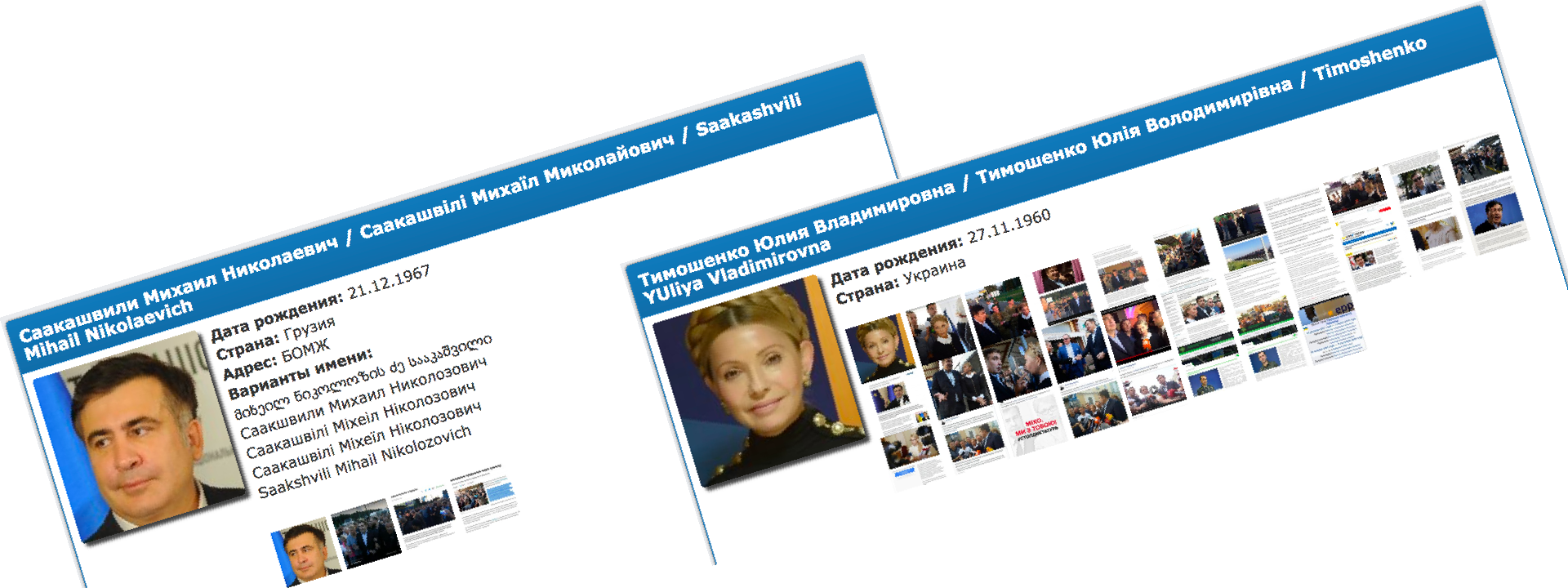UN Calls for Investigation of Ukrainian Digital Blacklist
Myrotvorets publishes profiles on separatists, Russian fighters, and journalists… in its “terrorist” database
UN Calls for Investigation of Ukrainian Digital Blacklist

Myrotvorets publishes profiles on separatists, Russian fighters, and journalists… in its “terrorist” database

The independent Ukrainian website “Myrotvorets” resurfaced in the news when the UN High Commissioner for Human Rights (OHCHR) called for a Ukrainian investigation into the site. Myrotvorets hosts a public platform displaying the personal information of thousands of people who, according to site’s creators, act as “enemies of Ukraine.” Many of the individuals on the site are enemy combatants who have fought against Ukraine, such as separatist and Russian soldiers. However, the list also includes journalists allegedly affiliated with armed groups and/or “terrorism,” in addition to well-known politicians.
In the @UNHumanRights (OHCHR) “Report on the human rights situation in Ukraine” dated May 16-August 15, 2017, Ukrainian authorities were urged to promptly and effectively conduct an investigation to address alleged violations and remove personal data from Myrotvorets.
Earlier, on July 7, the Ukrainian National Police opened a criminal case under Article 171(1) of the Criminal Code of Ukraine for “obstruction of the lawful professional activity of journalists” against Myrotvorets after it publicly posted the “personal data of thousands of people including media professionals and NGO activists, labeling them as supporters of armed groups and ‘terrorism’.”
Journalists in Ukraine face physical assaults and online harassment as a result of alleged “collaboration” with “terrorists” or what is interpreted as anti-Ukrainian sentiment. In an increasingly dangerous environment for journalists and media freedom, efforts such as Myrotvorets serve as “doxing” centers that lead to real danger.
What is Myrotvorets?

“Myrotvorets,” or “Peacekeeper,” self-advertises as an independent non-governmental organization that investigates “signs of crimes” against Ukrainian national security, peace, humanity, and international law and provides information for law enforcement and special services about “pro-Russian terrorists, separatists, mercenaries, war criminals, and murderers.” Myrotvorets claims it operates “in strict accordance” with Ukrainian and international law to which Ukraine is subject to. While Myrotvorets states that it uses open source information, much of the information published was shared privately via email.
As RFE/RL reported, former department head of the Security Service of Ukraine (SBU) Roman Zaytsev was rumored to be the head of the project, with Member of Parliament and advisor to Interior Minister Arsen Avakov, Anton Gerashchenko, directing Myrotvorets’ operations. When asked in an interview with RFE/RL whether Myrotvorets was his brainchild, “Gerashchenko winked, chuckled, and replied: ‘No.’”
https://www.facebook.com/myrotvorets.center/posts/1580790008649815
Myrotvorets recently posted profiles for former Georgian President and governor of Odesa Oblast Mikheil Saakashvili (dated September 10, 2017) and former Ukrainian Prime Minister Yulia Tymoshenko (dated September 11, 2017). In June 2016, Ukrainian President Petro Poroshenko condemned Myrotvorets for publishing personal data of more than 4,000 journalists under allegations of collaboration “with fighters from terrorist organizations.”


Media Freedom in Ukraine
After the illegal annexation and occupation of Crimea and the beginning of the conflict in eastern Ukraine in 2014, the new Ukrainian government began to undertake efforts aimed at combating Russian active measures, information warfare, and propaganda. In line with these efforts, the Ukrainian government implemented domestic reforms that curb media freedoms despite intent to increase transparency and combat corruption.
Information protection is mandated in Ukrainian law. Under Article 34 of the Ukrainian Constitution, freedom of speech and expression are guaranteed as a right with the exception of “interests of national security, territorial indivisibility or public order, with the purpose of preventing disturbances or crimes, protecting the health of the population, the reputation or rights of other persons, preventing the publication of information received confidentially, or supporting the authority and impartiality of justice.” At first glance, these exceptions seem reasonable; but they can be easily manipulated in practice.
Ukrainian officials frequently voice support protection of the media. Ukrainian Minister of Information Policy Yuriy Stets regularly voices support for the protection of Ukrainian journalists, citing attacks and illegal detention of Ukrainian journalists Mykola Semena and Roman Sushchenko. On April 25, Stets presented an issue of a the National Union of Journalists of Ukraine (NUJU) focusing on aggression towards Ukrainian journalists.
On the other hand, not all Ukrainian information-dissemination related actions have been positive. On March 27, Ukrainian President Petro Poroshenko signed amendments to Law no. 6172 “On Prevention of Corruption” requiring representatives of NGOs, journalists, and activists working in anti-corruption work to file asset e-declarations in 2018. The amendments were largely considered to be controversial and several Members of Parliament unsuccessfully attempted to abolish the amendments, as it can be abused to pressure anti-corruption groups and limit their freedoms and capacities.
Conclusion
Myrotvorets is a particularly problematic and clearcut case in Ukraine’s increasingly hostile media environment. So much so that it came to the attention of the UN High Commissioner for Human Rights. Without official action, the problem is likely to persist and escalate, with an increase in both media censorship and attacks on journalists.
Follow the latest Minsk II violations via the @DFRLab’s #MinskMonitor.

